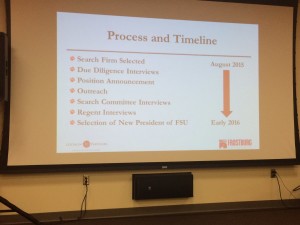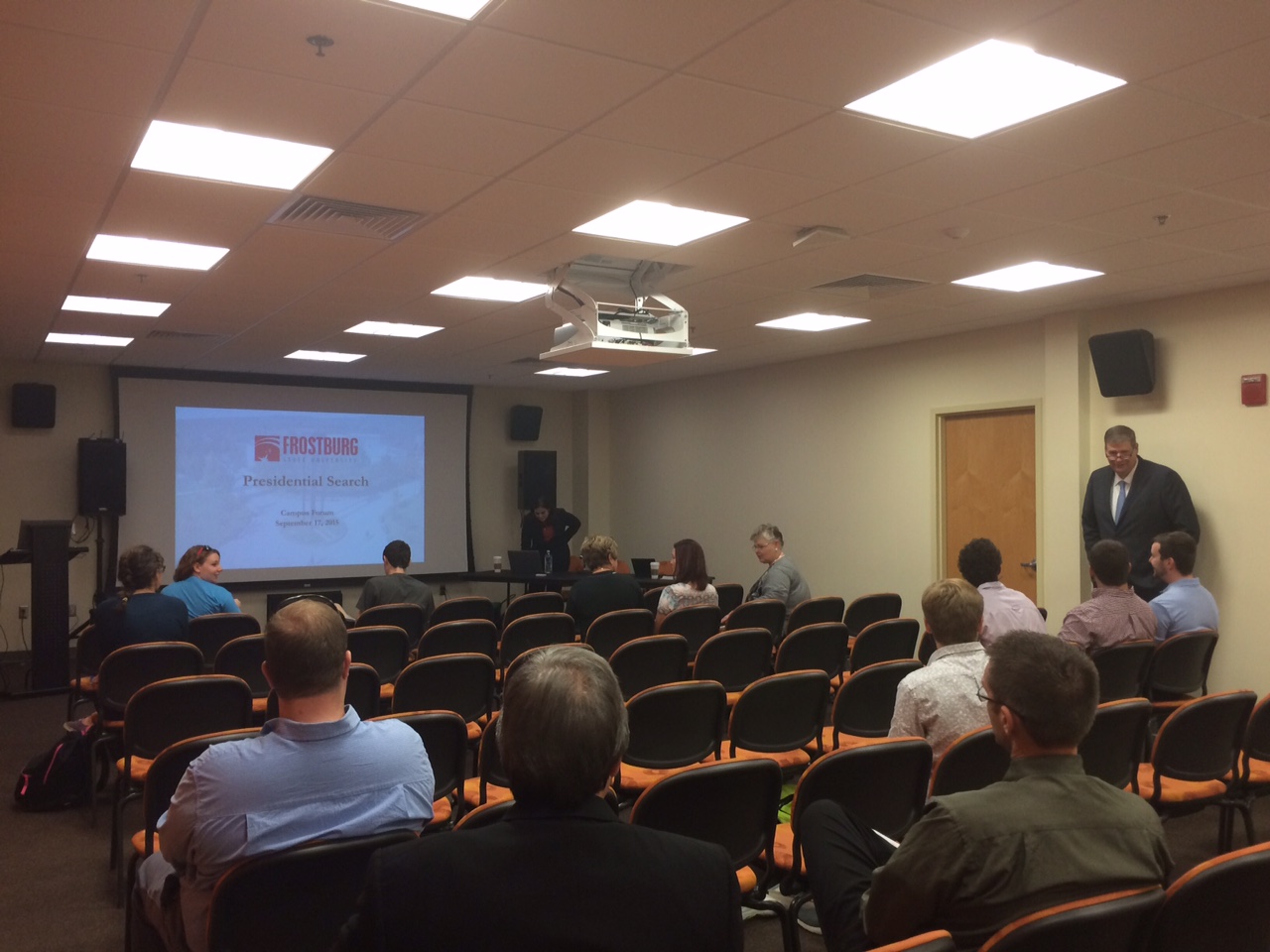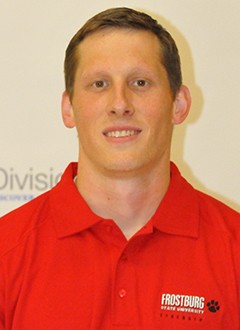Presidential Search Firm Outlines Selection Process at Open Forum
Representatives from the Lochlin Partners executive search firm outlined Frostburg State University’s presidential search process at two forums held on September 17, 2015.
It was announced on April 29, 2015 that the Lochlin Partners would assist in the search process. For their assistance in the search, the search firm is being paid $95,000 from FSU’s operating budget, in addition to other expenses, most likely covering travel costs, according to Mike Lurie, a spokesperson for the University System of Maryland Boards of Regents. Lurie doesn’t expect travel expenses to add much to the total cost.

Frostburg State University’s presidency was vacated by Dr. Jonathan Gibralter, who is now serving as president of Wells College, located in Aurora, New York. Dr. Tom Bowling, who previously served as FSU’s vice president for student affairs, is serving as interim president.
Patrick Friel, a managing partner of the firm, graduated from FSU in 1988. “There’s no search I wanted to do more than this one,” he said. When Friel was a student at FSU, he saw the end of Dr. Nelson P. Guild’s presidency and the beginning of Dr. Herb Reinhart’s.
The presidential search process, which will be a closed search, begins with the selection of an executive search firm, who begins conducting “due diligence interviews” with stakeholders.
“We’ve been conducting due diligence interviews with stakeholders on campus for about a month now,” said Friel. “So, we’ve talked to everyone that reports to the president. We’ve talked to members of the faculty senate, we’ve talked to the deans, we’ve talked to the members of the board of regents, and we’re going to talk to the legislators today. We’re talking to a senator and three delegates from the area today. We interact with a wide variety of stakeholders and it’s an important part of our process.
“Interacting with stakeholders is key, and also key is having these open forums. A college is, you know, a community, so we’re really interested in feedback across the community, as well,” he said.
Following the due diligence interviews, the search firm will make position announcements and advertisements based on a profile they develop. However, Friel said, “Unfortunately, we don’t get, sort of, the response to the ads that you might think we do. Typically we get most of our traffic through outreach.”
“We actively get into the marketplace, and we call candidates,” he said.
After the search firm assembles a “long list” of candidates—probably around 20, Friel said—the search committee—made up of campus representatives—will interview between five and ten candidates before presenting two or three candidates to the University System of Maryland Board of Regents. The Board of Regents will make the final selection.
When asked what Lochlin Partners looks for in a president, Friel said, “You need a leader that can really develop and leverage a distinctiveness in the organization that they’re gonna represent, and someone who can raise money.”
“As you guys are probably all acutely aware, your tuition doesn’t cover everything and neither does the state coffers,” Friel said. “And the state’s trend in funding higher education is going a different way than we’d all like it. There’s an opportunity to fundraise through alumni, and through grants, and there’s a lot of other ways to develop dollars that the university can use, and typically, a president is good at that.”
Friel added, “When you talk about a president, to talk generics, you’re looking for a good leader, someone who can set a vision, someone who can advocate for the organization, and someone who’s got the skillset to build the relationships across the organization to be successful.”
The search is not limited to those with experience in higher education and private sector candidates are eligible.
“We’d like to at least see a couple of different profiles,” Friel said, explaining that there’s the “academic profile that really connects well with faculty.” Other profiles include the “vision person” and the “business person.”
From academic settings, the search firm will consider sitting presidents, as well as provosts, deans from large schools, and an “outside-the-box” candidate.”
In-house candidates are, of course, eligible, but “they don’t have an inside track,” according to Pam Pezzoli, another partner in the search firm.
Key issues voiced by participants included: improving the university’s regional presence, building a better relationship with the Allegany County community, improved residence halls and academic buildings, and better access for those with disabilities.
“The good [presidents] create a vision,” Frield said. “They advocate for the students. This is a complex system. You guys see this campus. Well, there’s a University of Maryland System behind it, and that’s where the money is. So you gotta have a leader who can keep this place going in the right direction, who wants to be here, but also can go down state and really deliver [in Annapolis]. Those are the things that would make a good president for Frostburg.”





1 Comment